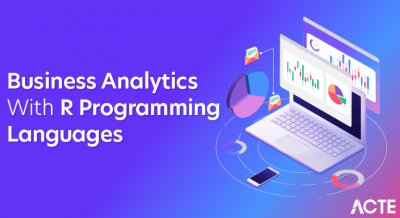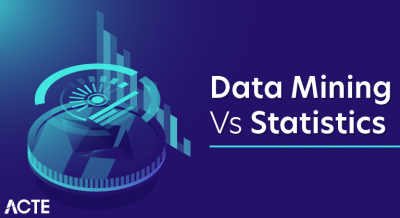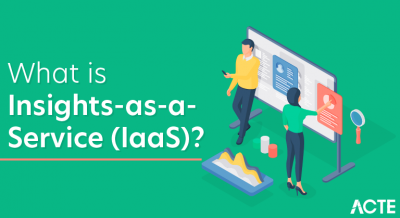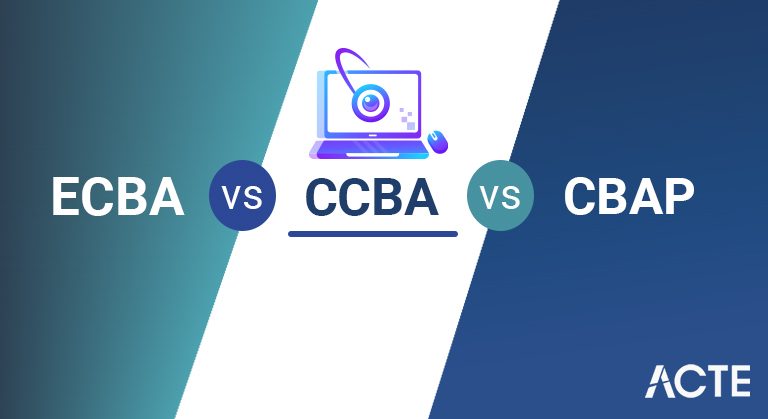
ECBA(Entry Certificate in Business Analysis),CCBA (Certificate of Capability in Business Analysis), CBAP (Certified Business Analysis Professional).
- Introduction
- Options to Become a Certified Business Analyst
- Which One Should You Choose? A Comparison
- Tabulated Overview of ECBA, CCBA and CBAP courses
- Differences Between ECBA, CCBA and CBAP
- Full-Form
- Caters to
- Target Audience
- Eligibility
- PD Hours
- References
- Focuses on
- Exam pattern
- Conclusion
- Failure charge of IT tasks
- A commercial enterprise analyst bridges the distance among exclusive commercial enterprise gadgets and it departments
- Outsourcing has turn out to be a necessity; and, the commercial enterprise analyst continues the stability in values
- Projects are becoming increasingly complex
- The unique capabilities of commercial enterprise analyst assist the agencies undertake new technologies
- The commercial enterprise analyst performs crucial function in finances allocation
Introduction:-
The significance of commercial enterprise analyst is developing rapid for over the last couple of years; today, having the aggressive commercial enterprise analysts has turn out to be vital to finish the tasks successfully. With growing competition, the function of commercial enterprise analyst has turn out to be specialized. A commercial enterprise analyst owns the duty to convert the company’s operations to worthwhile tasks finishing touch through extending complete throttle aid to the involved team. The foremost elements contributing to the developing significance of commercial enterprise analyst are:
- ECBA – Entry certificates in commercial enterprise evaluation
- CCBA – Certification for competency in commercial enterprise evaluation
- CBAP – Certified commercial enterprise evaluation professional (CBAP)
Options to Become a Certified Business Analyst:-
Having a globally identified commercial enterprise evaluation certification facilitates you accelerate your profession in nearly any commercial enterprise sector. As the massive statistics and commercial enterprise intelligence are becoming wide-scale significance in mission management, the worldwide call for for commercial enterprise analysts is likewise growing. According to a document launched through Mc Kinsey Global Institute, the call for for commercial enterprise analysts simplest withinside the United States might be 50% – 60% better than the projected deliver through 2018. The scarcity of commercial enterprise analysts, as projected through numbers of various reports, offers you an possibility to turn out to be a licensed commercial enterprise analyst with vibrant boom prospects. A range of information schooling corporations in India provide a lot of value-brought courses.
The greater in-call for commercial enterprise evaluation certification courses, issued through IIBA (International Institute of Business Analysis) are –
- CCBA, the level-2 certification, is appropriate for the skilled commercial enterprise evaluation practitioners with three,750 hours enjoy. The enjoy doesn’t want you to keep the designation of ‘Business Analyst’ essentially, however your enjoy must be BABOK® v3.zero Guide oriented.
- CBAP, the level-three certification, is appropriate for the commercial enterprise analysts with massive 7,500 hours of enjoy however inclined to enhance their expertise.
Which One Should You Choose? A Comparison:-
ECBA is the beginning line to devise your profession in commercial enterprise evaluation. The qualification displays the information of superior BA concepts & strategies that assist you control the mission successfully.
Tabulated Overview of ECBA, CCBA and CBAP courses:-
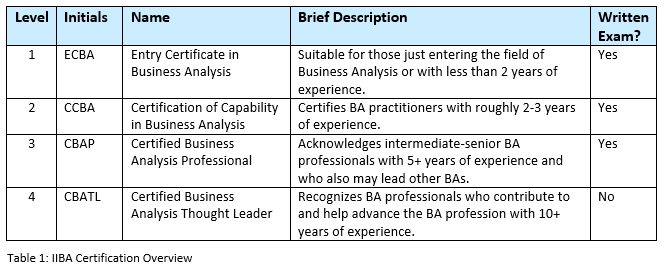
- The Business Analysis field is a growing field in the business world of today. Business Analysis is defined as the practice of enabling change in an organization or an enterprise, by defining needs/opportunities and recommending solutions that deliver value to stakeholders.
- So many institutes like IIBA® (International Institute of Business Analysis), PMI– (Project Management Institute) and BCS (British Computer Society) offer the business analysis certification but it seems the IIBA is more recognised as more people are certified from IIBA.
- IIBA® is a non-profit professional association that dedicates itself to the Business Analysis field by acting as the voice of the business analysis community. IIBA supports the recognition of the Business Analysis profession and does its best to maintain the global standard for the certification and practices.
- The International Institute of Business Analysis (IIBA’s) certifications are designed to suit the needs of business analysis professionals at various levels in their career. The differences between the ECBA, CCBA and CBAP explains this sentence better. This article will also answer questions like
Differences Between ECBA, CCBA and CBAP:-
- Level 1 – ECBA – Entry certificate in business analysis
- Level 2 – CCBA Certification of capability in business analysis
- Level 3 – CBAP Certified business analysis professional
The three certification levels follow a Business Analyst career path and are meant to be a guide:
Essentially, you do not need to complete them in order. For example, if you already have the experience and requirements of a CBAP®, you do not need to complete the ECBA® or CCBA® first.
Full-Form
ECBA- Entry Certificate in Business Analysis.
CCBA- Certification of Capability in Business Analysis.
CBAP- Certified Business Analysis Professional.
Caters to
ECBA- Recognizes individuals entering the field of business analysis.
CCBA- Recognizes BA professionals who have 2-3 years of BA experience.
CBAP- Recognizes BA professionals who lead and have over 5 years of BA experience.
Target Audience:-
ECBA- Individuals entering the BA profession New graduates Professionals aiming to switch over to a BA career
CCBA- BA professionals having 2/3 years of experience Developing BAs, Hybrid BAs – PMs, Testers, QA, Change Manager, Tech Lead
CBAP- Aimed towards BA professionals having 5 years of experience Seasoned BAs, BA Consultants, Trainers, Business analysis, Systems analysis, Requirements analysis or management, Process management, Consulting
- No Work Experience required
- No Knowledge Area expertise
- Minimum 21 hours of Professional Development Training in the past four years
- Minimum 3750 hours of BA work experience aligned with the BABOK® Guide in the last 7 years
- Minimum 900 hours in each of two of the six knowledge areas or minimum 500 hours in each of four of the six knowledge areas
- Minimum 21 hours of Professional Development Training in the past four years
- Two references from a career manager, client, or CBAP® recipient
- Minimum 7500 hours of BA work experience aligned with the BABOK® Guide in the last 10 years
- Minimum 900 hours in each of four of the six knowledge areas
- Minimum of 35 hours of Professional Development Training in the past four years
- Two references from a career manager, client or CBAP® recipient
Eligibility:-
ECBA
CCBA
CBAP
PD Hours:-
ECBA- 21 in the last 4 years
CCBA- 21 in the last 4 years
CBAP- 35 in the last 4 years
References:-
ECBA- Not needed
CCBA- 2 from a career manager, client, or CBAP® recipient
CBAP- 2 from a career manager, client, or CBAP® recipient
- Requirements Analysis and Design Definition -25%
- Requirements Life Cycle Management – 20%
- Business Analysis Planning and Monitoring – 5%
- Elicitation & Collaboration – 20%
- Techniques -17.5%
- Underlying Competencies – 5%
- Business Analysis Key Concepts – 5%
- Business Analysis & the BA Professional- 2.5%
- Requirements Analysis and Design Definition – 32%
- Elicitation and Collaboration – 20%
- Requirements Life Cycle Management – 18%
- Business Analysis Planning and Monitoring – 12%
- Strategy Analysis – 12%
- Solution Evaluation – 6%
- Requirements Analysis and Design Definition -30%
- Strategy Analysis -15%
- Requirements Life Cycle Management – 15%
- Solution Evaluation -14%
- Business Analysis Planning and Monitoring – 14%
- Elicitation and Collaboration – 12%
- 1 hour long
- 50 multiple-choice questions
- Basic multiple choice that tests the candidate’s knowledge and understanding
- Details on ECBA Exam Pattern
- 3 hours long
- 130 multiple-choice questions.
- The questions are scenario-based (i.e. the candidate must do a bit of analysis to arrive at the answer)
- Details on CCBA Exam Pattern
- 3.5 hours long
- 120 multiple-choice questions.
- The questions are longer cases (1 to 1.5 pages of information)
- Multiple questions about the case.
- Details on CBAP Exam Pattern
Focuses on:-
ECBA
CCBA
CBAP
Exam Pattern
ECBA
CCBA
CBAP
Conclusion:-
To have ECBA, CCBA or CBAP qualification, you want severe understanding of subjects except the ok experience; right here comes the position of understanding education organizations that provide instructor-led certification education to digital school room batches that will help you byskip the written take a look at in 1st attempt.



